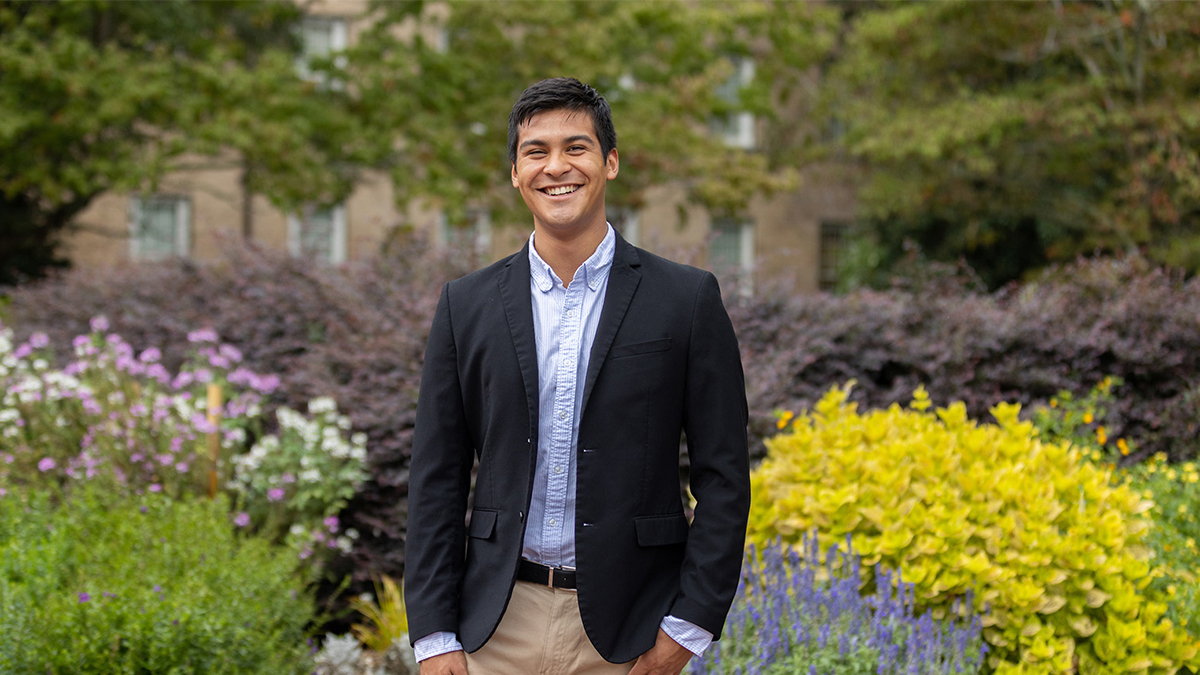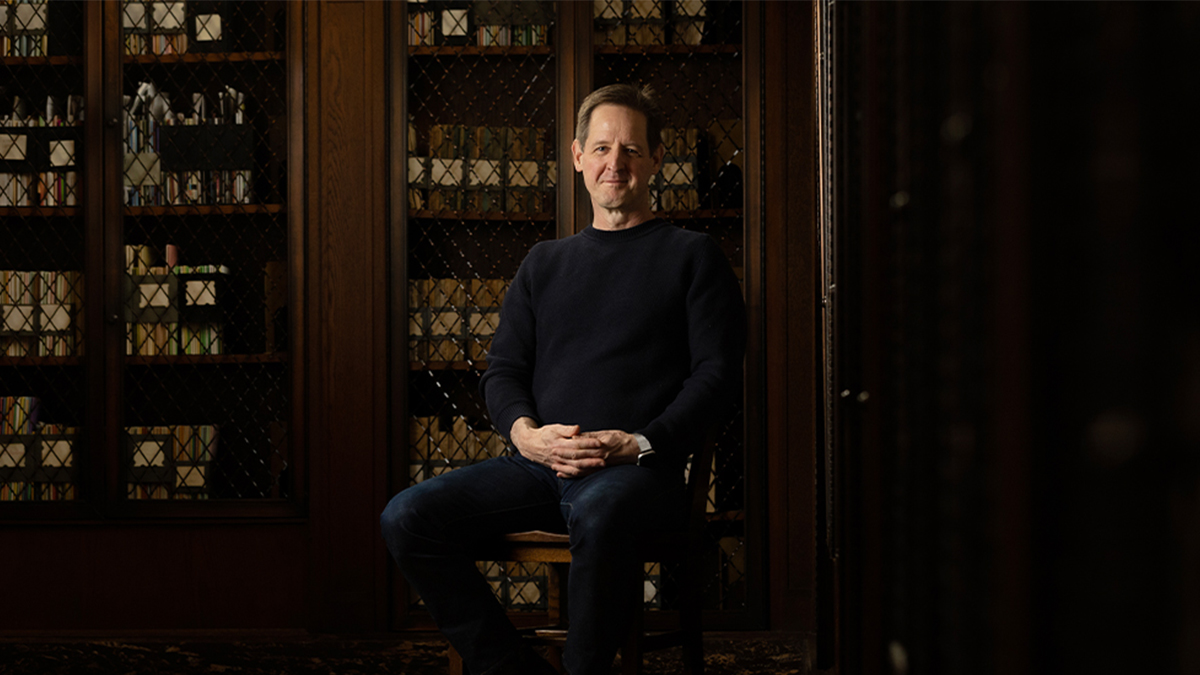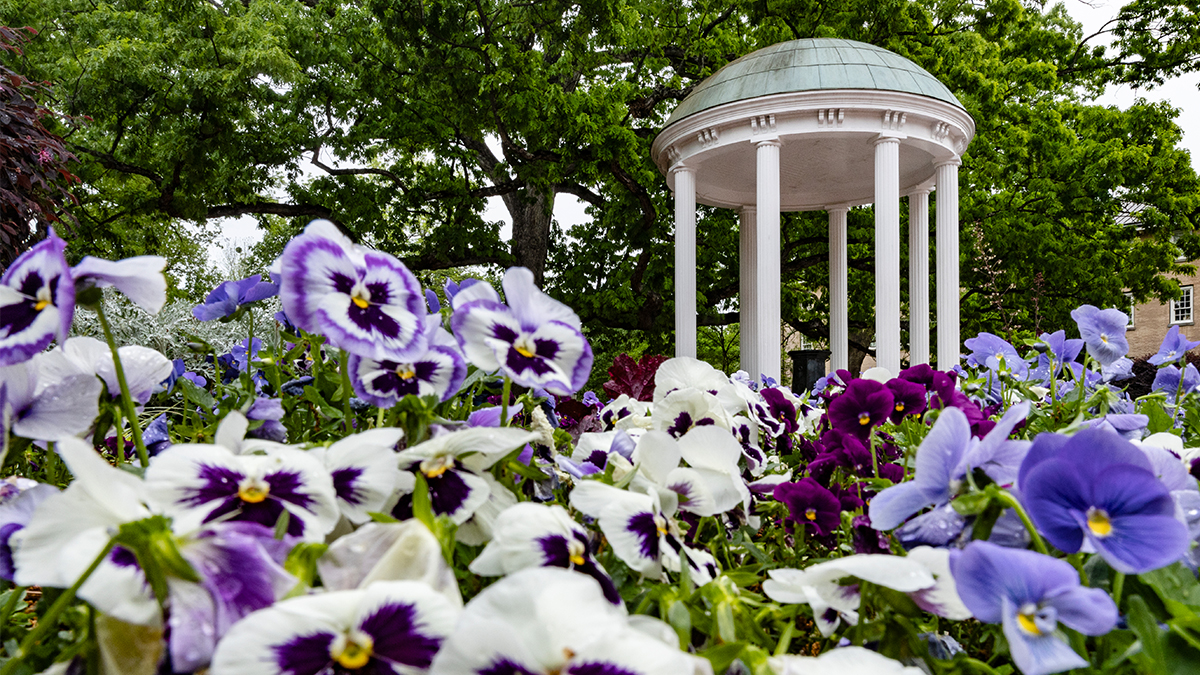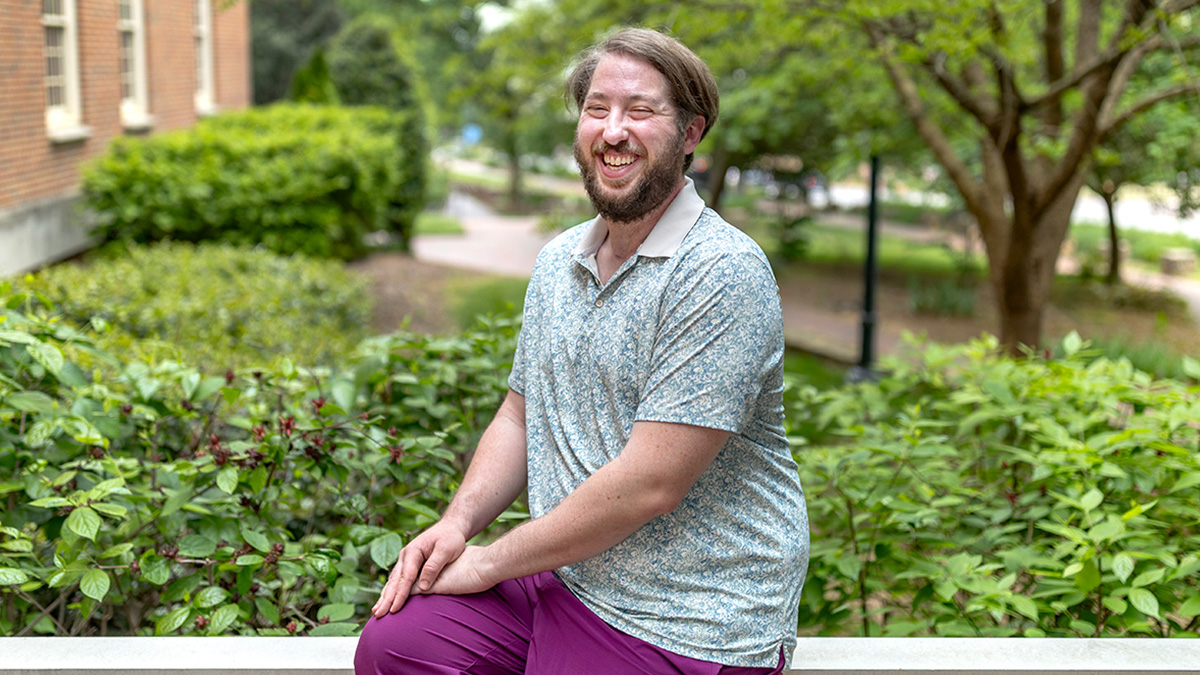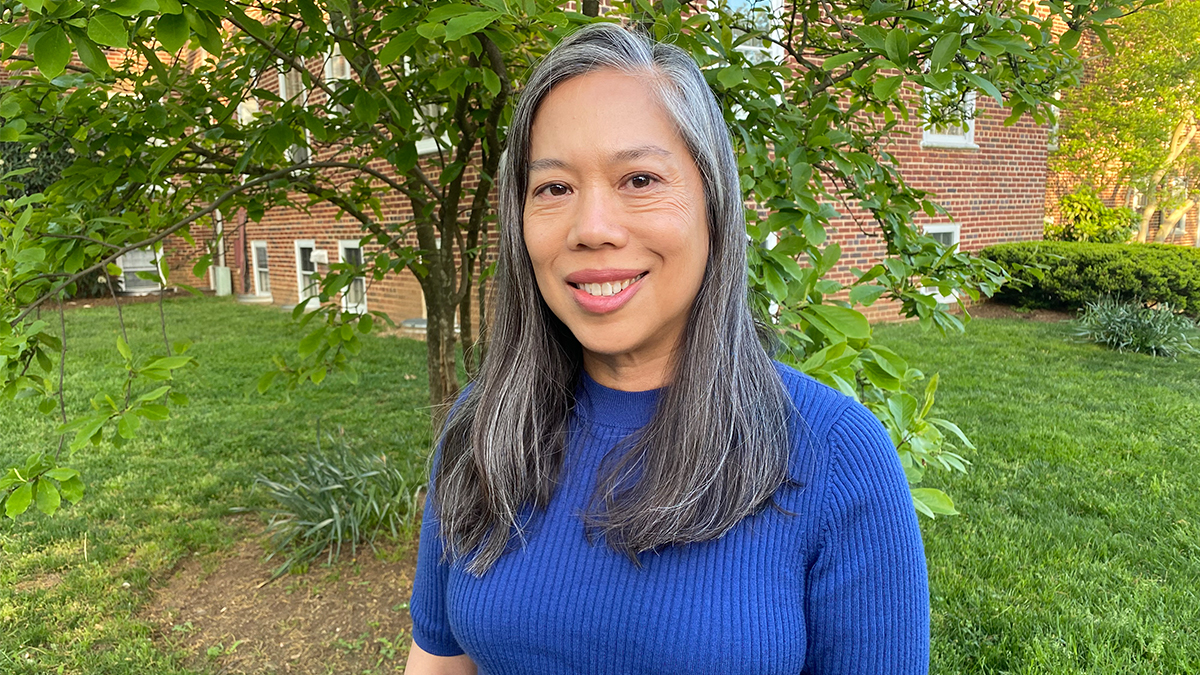A sheltering place for refugees
The Triangle area has provided shelter to 8,000 refugees from Myanmar (formerly called Burma) over the last decade as a resettlement area selected by church organizations.
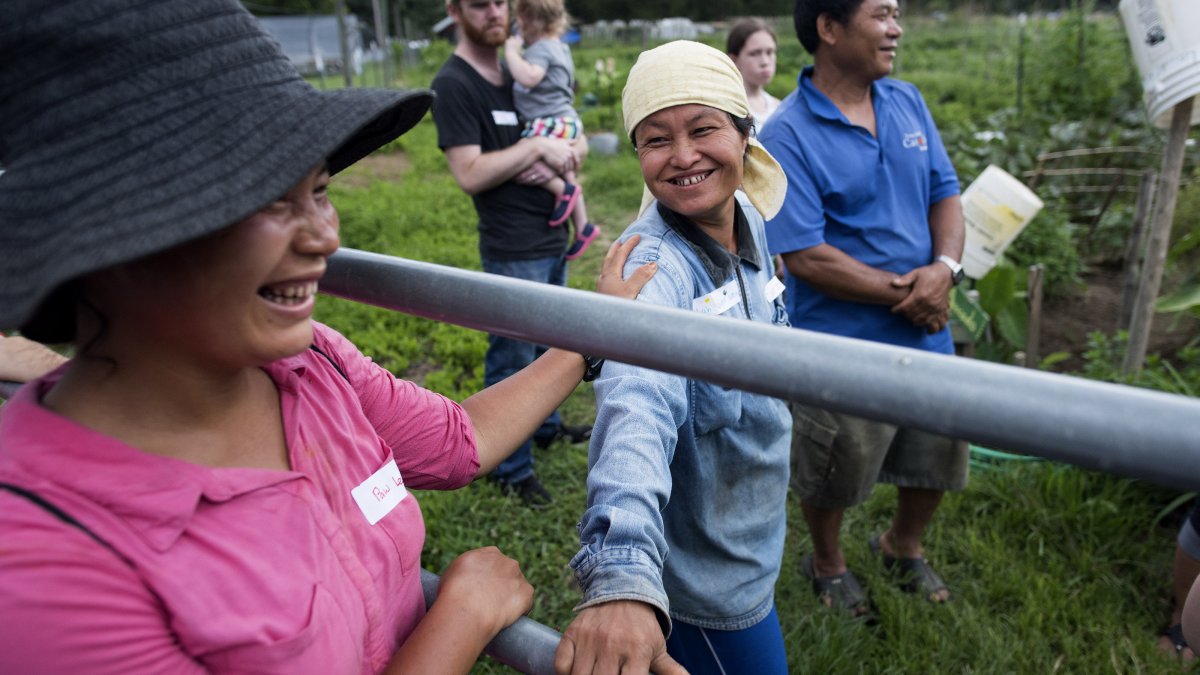
Dark clouds loomed over the Transplanting Traditions Community Farm on a recent evening, threatening to rain on a midsummer potluck dinner. But underneath the tin roof of the farm’s largest building, everyone was dry and happy, eating at picnic tables and talking in English and Karen.
Like the roof covering the diners, the Triangle has provided shelter for the past decade to 8,000 refugees from Myanmar (formerly called Burma) as a resettlement area selected by church organizations for refugees in camps in Thailand. Most of the refugees belong to the persecuted Karen (Kah-REN) and Chin ethnic groups. Unlike most people in their homeland, the Karen and Chin people converted to Christianity.
More than 1,000 of the refugees live in Chapel Hill and Carrboro. In 2010, the Orange County Partnership for Young Children received a grant from the Office of Refugee Resettlement to create Transplanting Traditions Community Farm. The five-acre farm is located just southwest of Chapel Hill, off Jones Ferry Road, on the 269-acre Irvin Farm Preserve, a property managed by the Triangle Land Conservancy.
The project started with 14 families and expanded to 32 this year. Next year, the farm will grow to eight acres and refugee farmers are already on the wait list to participate.
A chance to grow
The farm allows the refugees – many of them displaced farmers – to transplant their growing skills to their new home. In the process, they learn about sustainable farming in America, earn extra money by selling produce at farmers’ markets and to subscription customers and, of course, provide their families and the refugee community with a steady supply of fresh, healthy food.
Each year, the farm produces more than 53,000 pounds of food. To date, it has generated $232,756 in sales and all revenues go directly back to the farmers. They grow traditional Southern crops like strawberries, okra and mustard greens as well as Asian hot chilies, bitter melon and lemongrass from their own culture – more than 80 vegetables, fruits, greens and herbs in all.
The story of the refugees who resettled here and helped create the Transplanting Traditions farm is told in a new bilingual children’s book that describes Karen cultural history, farming traditions and the refugee experience. The narrative and illustrations of Transplanting Traditions: The Story of a Community Farm originated with young members of the local refugee community. FRANK Gallery artists mentored the young illustrators, and local children’s book author Susie Wilde wrote the story in English. (To buy the book, contact Nerys Levy at rilevy@mindspring.com. A portion of the sales price goes to youth programming at Transplanting Traditions farm.)
The refugee experience
The potluck dinner on this cloudy evening brought together the farmers and the local community members who receive their produce weekly through a community-sponsored agriculture (CSA) subscription. Guests wore nametags that also included the name of their farmer. (The Karen traditionally don’t have surnames.)
Zar Ree, one of the farmers and a University housekeeper, rose to say a few words. Her teenage daughter, Ree Ree Wei, translated her emotional message into English.
“Thank God for providing us a place here. Thank you to all the CSA customers,” Ree Ree Wei translated for her mother. “This year is going really well because of access to water. Even though it’s hard work, I am grateful.”
Stanley Robboy, a professor at Duke’s medical school, and his wife, Marion, heard about the farm through the Kehilla Synagogue. About a dozen synagogue members decided to become CSA subscribers.
“If you think you work hard, look at these people,” said Robboy, scanning the crowd. “I am delighted that we have the opportunity to help them.”
Part of the reason he wanted to help was his own refugee background. His father grew up in czarist Russia and came to America with nothing after his village was destroyed in a pogrom. “These people are fighting for their lives. This will give them a chance for an economic recovery,” he said.
World’s longest civil war
Most of the local refugees are Karen people from the hill country separating Myanmar from Thailand. They fled from the world’s longest civil war, between the Burmese majority and smaller ethnic groups like the Karen.
The conflict dates back to World War II, when the Karen fought for the Allies and the Burmese fought for the Japanese. When the war was over and the British granted the Burma colony its independence in 1948, the British government surrendered power to the Burmese majority without partitioning the country as it had done with India and Bangladesh/Pakistan.
In 1962, a military junta took over the government and ran the country for the next 50 years. In 1989, the junta officially changed the country’s name to Myanmar. They continued to persecute the Karen and other minorities and suppressed dissent. The most famous example of this suppression was the house arrest of opposition leader Aung San Suu Kyi, winner of the 1991 Nobel Peace Prize for her nonviolent push for democracy.
Her National League for Democracy party received the majority of the vote in 2015, and, although she isn’t allowed to hold the title of president, she is effectively running the country as “state counselor.” The Karen National Union, one of the largest rebel groups in Myanmar, signed a national ceasefire agreement as a precursor to peace talks later this year.
But even as Myanmar teeters on the brink of peace, its refugees are making homes in new places, like here in Orange County. Paw Lei, one of the farmers at the potluck dinner, was happy to practice her English, talking about her job as a University housekeeper, her home in Mebane and her four dogs and two cats.
She didn’t do much farming before, but she has thrown herself into growing vegetables at Transplanting Traditions, including “American” food. “I love it – broccoli, cauliflower, kale and Swiss chard,” Paw Lei said.
As she talked, the storm clouds that had been gathering finally burst and the rain began to fall. Guests who were taking farm tours cut them short and returned to the shelter of the picnic area.
But one of the farmers, Zar Ree, ran in the opposite direction, into the downpour.
“It’s the best time to plant some seeds,” she said.
Transplanting Tradition’s Share a Share program allows community members to buy traditional Burmese vegetables that are then distributed for free to refugee families suffering from hunger. To donate to the Share a Share fund, visit www.TransplantingTraditions.com.
